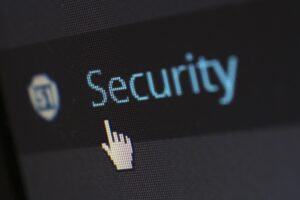
Codes of Conduct are a set of rules and suggestions. They can be used by businesses, national and international groups, private organizations, and others.
Codes of Conduct work to guide their members’ behavior by setting clear principles and beliefs. They explain what is moral, ethical, and honorable. They give advice and help in difficult situations and provide ways to report abuse.
Their goal is to discourage corruption and promote a more ethical atmosphere. A code of conduct is essential in the security industry. This includes any company that offers security services for people or property. It can also cover protection services that use guard dogs.
This blog will help understand the importance of a code of conduct in the security industry and help make one for security guards.
What is a code of conduct?
Codes of conduct in the defence and security sectors are based on the military and other security establishments’ unique corporate cultures. They are guidelines that explain what is considered ethical behavior for staff. They also outline what to do in a problem that may lead to corruption.
Moreover, they explain how to report the corrupt actions of others. Codes of conduct typically comprise several articles. Although they differ by nation, the following are the most popular topics:

- General principles
- Lawful Duties of the public officials/civil and military personnel/members
- Ethical use of their powers
- Conflicts of interest
- Disclosure of assets and transparency
- Acceptance of Gifts
- Bribery
- Accountability
- Confidential Information
- Conflicting professional/business/political activities
- Reporting
- Activities/employment after leaving public service
This blog would not detail each topic, but supervisors must address most of these in the code of conduct.
Security companies can enact organizational, national, and/or worldwide codes of conduct. Corruption frequently crosses national lines. As a result, such areas should form international collaboration routes.
Codes of conduct and other restrictions provide an excellent chance for this. They might emphasize the significance of openness, accountability, and international legal collaboration.
What can you include code of conduct?

The following are the most usual sections to include in a code of conduct:
- Ethics – includes workplace behaviour and respect for all people.
- Values – include an honest, unbiased, and impartial work environment.
- Accountability – includes taking responsibility for your actions, ensuring appropriate use of information, exercising diligence and duty of care obligations, and avoiding conflicts of interest.
- Standard of conduct – includes complying with the job description, commitment to the organization, and proper computer, internet, and network security.
- Standard of practice – includes current rules and processes, as well as a company operating handbook.
- Disciplinary measures – include complaint processing and precise consequences for any code violations.
You may tailor the various components of your code of conduct to your company’s needs and the rules and regulations you establish for your employees. Look for samples and templates online, or use another organization’s code of conduct as a guide.
Why are codes of conduct necessary?
Codes of Conduct and other voluntary rules make a significant difference in security-sector institutions. For instance, the military culture includes honoring the ideals of such an establishment.
Corruption comes in various ways, some more visible than others. To minimize misunderstanding and omission, companies should provide an explicit declaration of what is expected from staff, what is and is not acceptable, and how to avoid and deal with contradictory circumstances. A universal commitment should back this up with defined behavioral norms. Senior officers and officials set an example by establishing standards of behavior as a critical component of the security sector’s structure.
A well-written code of conduct defines an organization’s vision, objectives, and beliefs, connecting them to professional behavior requirements. The code articulates the principles the company seeks to instill in its leaders and workers and the intended conduct. As a result, written codes of conduct or ethics can serve as measuring sticks for individual and organizational success.
A code is also an introductory guide and reference for employees to use in daily decisions. A code facilitates ethical and compliance talks, equipping employees to deal with ethical difficulties that arise in the course of their job. Moreover, It may also be a helpful reference tool, assisting employees in locating essential papers, services, and other resources linked to ethics inside the firm.

How do you write a code of conduct?
The code of conduct is supposed to be a document with simple, straightforward language that all employees can understand. The company should form the code of conduct in such a way that it can be easily implemented and reviewed by others. Here are some tips we found to be quite beneficial when creating a code of conduct.
Find other codes of conduct.
Many codes of conduct on the internet are industry specific and relatively easy to understand. Most of these past codes of conduct can give you a framework to follow.
The ideal guiding structure for defence officials and personnel of the armed services, according to Transparency International (TI), consists of three key components: a legislative framework with ethical advice, a code of conduct, and a declaration of values. The legal framework comprises various legal legislation, civil service acts, and disciplinary and criminal codes. Because these documents are frequently written in technical language, they should be supplemented by guide notes to aid comprehension.
The code of conduct is a collection of behavioural rules and shared beliefs. It should be clear, concise, and understandable to all members of the security establishment. The statement of values is a separate proclamation that expresses an organization’s general ethical beliefs and supplements the code of conduct. Senior authorities should disseminate it extensively and promote it.
Their visibility and usability determine the efficacy of these publications. They must be introduced and studied at the earliest phases of a security sector career, with regular refreshment and integrity training sessions offered to all security sector professionals. Therefore, what else can you do to ensure the code of conduct is effective?
Get employee input
When developing your code of conduct, you should get feedback from your employees and stakeholders. Consider how you will incorporate their input into your document. You might want to ask the employees the following questions:
- What exactly does ethics mean to you?
- How well does the company put its values into action?
- Is it possible to increase our ethical performance?
- What are your thoughts on the proposed ethical guidelines?
- Would this code of conduct assist you in making decisions?
- How could it be more beneficial?
- Is there anything more you think we should add?
Employees’ feedback is helpful when creating a code of conduct, and any employer in the security industry would understand that once they make their own.
Start with A Do’s and Don’t’s list!
A Do’s and don’ts list is usually what any company would start with when making a code of conduct, as the idea is to list what they expect from their security guards. It’s like creating a pros and cons list. Weighing the Do’s and Don’ts can help you make a decision faster, better grasp the issue, and avoid decision-making paralysis. Creating a short “pros” and “cons” list enables you to approach your decision objectively rather than allowing your “gut feeling” to influence your decision. Here is a great example of a code of conduct created by Homeland Security.
Do’s

- Always obey and follow the policy of the company/department.
- Wear your proper uniform.
- Your uniform should be neat and properly ironed.
- Your shoes should be neat and polished.
- Shave daily/keep beard and mustache trimmed.
- Ensure that you have a proper haircut.
- Keep yourself updated about functional processes and procedures.
- Maintain your calm while speaking over the telephone.
- Be aware of your location’s vulnerable areas, security threats and emergency exits.
- Ensure that the premises are secure after business hours.
- Carry a torch with you for night duty.
Don’ts

- Do not leave your post unless permitted by your supervisor or for patrolling.
- Do not allow entry to any unauthorized person into the premises without permission.
- Do not come to work under the influence of liquor/narcotic substances.
- Do not smoke while on duty.
- Do not chew gum or tobacco while on duty.
- Do not sleep on duty.
- Do not engage in unnecessary conversation while on duty.
- Do not take leave without permission.
Overall, the effectiveness of the Codes of Conduct is also dependent on
- The reporting and consultation systems in place,
- The overall attitude toward the need for ethical behavior within the establishment,
- And the importance of identifying incorrect behavior.
The OECD suggests that strong internal controls, ethics, and compliance programs are important. There should also be a clear policy against unethical behavior. This must be backed by top management’s strong, vocal, and visible support and commitment. Hopefully, you can create a code of conduct for your security guards now!





